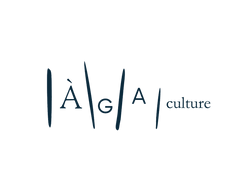
How did you come about African drumming? What inspired you and what was the conviction that made you realize this is what you want to explore?
I first became aware of African drumming at a young age while listening to traditional Yoruba musics by Yusuf Olatunji, Ayinla Omowura, Sekiru Ayinde Barrister, Wasiu Ayinde Mashal, and others. These songs contain a heavy African drumming component, and I was exposed to Yoruba musical proverbs and their meanings. All of this inspired me to learn more about African drumming, and I saw the level of impact that was sounded by delving deeper into African drumming.
Drumming was an expressive way for me to better describe myself, and it also represents the significance of my spirituality and connection to the higher realms.
Why the Djembe drum? What significance does it stand to you?
The Djembe drum has captured my heart because of how powerful it sounds. The drum holds a strong place in the upper realms for me, and I have always been on the lookout for that one sound that will put me on pathways of identifying how I want to be seen in the creative space of Art.
How will you describe your sound?
My sounds are described as ME, Yes me!
My sounds are extensions of the things that runs in my head (The ups and downs), also it’s described as an unconventional sound free from the box of sounds.
What was growing up like for you?
Being raised in the Bariga neighborhood of Lagos, Nigeria, where negativity stifled positivity and where great creativity abounds, was an adventure in learning that life isn't always someone else's to own. Growing up in such a setting in Lagos was a teaching experience for me, and I would argue that it marked the start of my greatness.

How do you incite creativity within yourself? Take us through your daily routine or a typical day in your life?
There isn't just one formal way to be creative.
My daily routine is fairly straightforward because I always spend hours in my studio practicing privately and trying out new playing techniques. I also never fail to do my daily research for the various projects I'm working on. I always let things come and when they do, I just flow through them.
How was the feeling to be selected among the 1000 creative artists around the world by OneBeat?
It was an incredible feeling to have experienced music in a new way with great creative artists from all over the world, and it was a huge honor to represent My Community, Our Beloved Country Nigeria, and, of course, West Africa at large in the international space of music. Thank you to the entire Onebeat residency team and the United States government for the great opportunity.

Can you give us an insight about your initiative to empower young people through music and arts?
For me, empowering young people is an act of giving back to society because I feel there is a lot to fight against as the negative activists in society are becoming too alarming for the younger generations. I see music as a redirecting genre of art that is best to restructure any society.
Myself and the Ọlọ́ runjedálọ Productions Team have been holding several community workshops on How to make drums, How to play drums and other instruments, and The making of Tie & Die and we are also working on giving out vocational skills scholarships to those who
are interested in vocational professions such as Fashion Design, Hairstyling, and a variety of others. All of these activities, I believe, will help to improve the lives of many young people.

Congratulations about your grand opening of Aaye art. Can you talk more on that?
Ààyè Art, is a community-oriented space for art-making that embraces artists and collaborations. The name translate literally to Space, however contextually and Variation of pronouncing the Yoruba word could mean Vacuum, which is itself a major focus of this physical building in bridging the spaces between young artist and cultural institution, gallery and Museums.
Ààyè we hope to bridge the space is encourage and supporting young artist in Bariga and its neighborhood environment with inspiring artistic works and pop-up sessions, which we believe is highly needed. Ààyè and its spaces will provide possibilities for the development, presentation, and discussion of art and culture as it relates to its immediate community and the world as it stands. Currently, we are welcoming artists who are in search of a space to develop art projects in Music, Photography, Visual Arts, and Performing Art.
What’s next for you?
A series of projects among them is Don't Call Them Beggars.
The project aims to empower beggars in Lagos, Nigeria, through sonic advocacy. The beggars, who are mainly northerners who had moved for economic reasons, learn that they are not prepared for the job market, and when combined with tribalism and overpopulation, they are left
on the periphery, scavenging for food. They frequently create music to go along with their pleas for alms in an effort to survive. The project idea is inspired by this musical creativity, and it is through it that l hope to elevate the value of all people, regardless of their financial situation.

0 comments